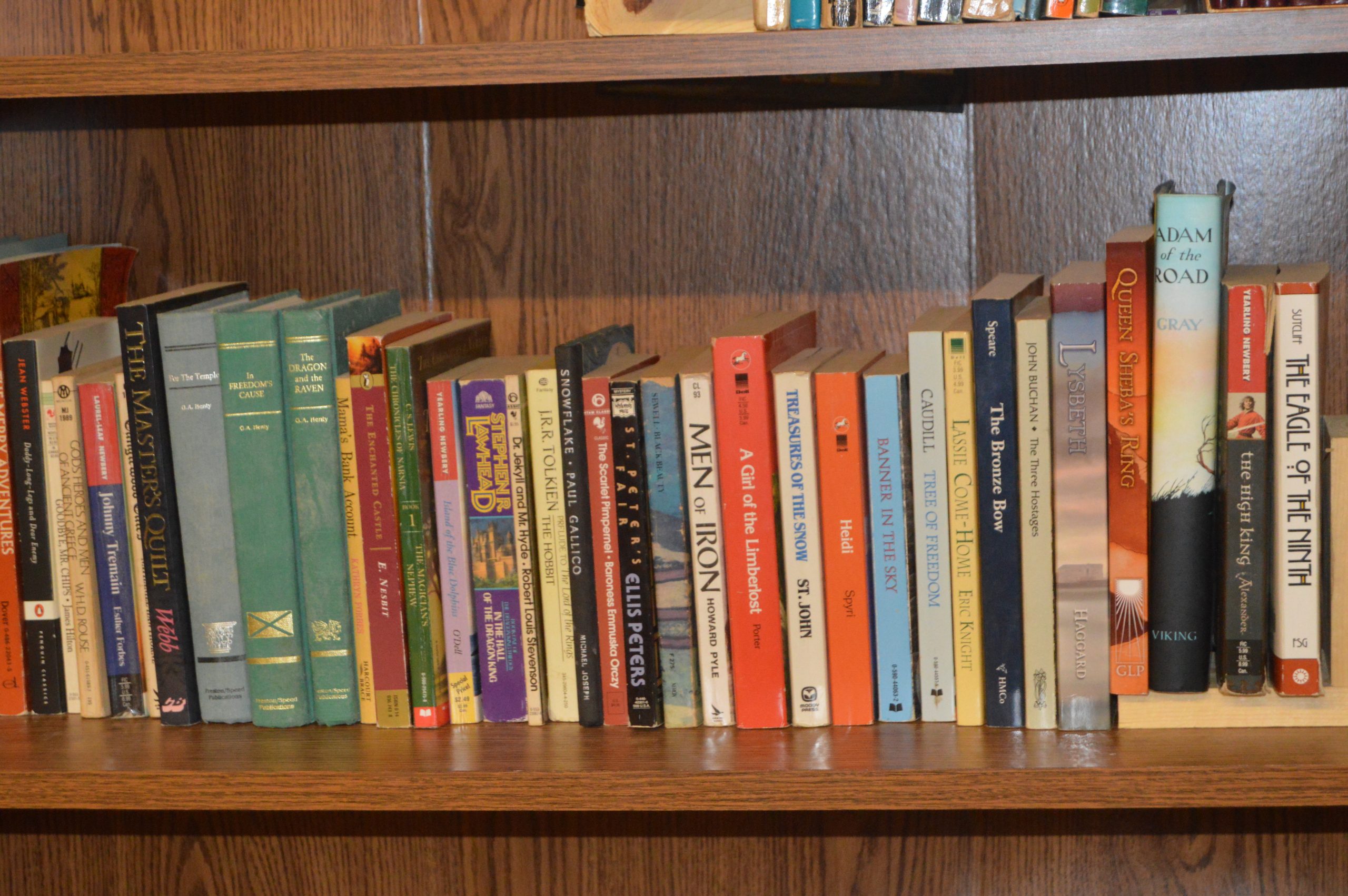
Great minds through the ages have centered on the importance for young minds of reading good books. Here’s a brief sampling:
- “A foundation of knowledge must be laid by reading.” Samuel Johnson
- “The habit of reading established early in life cannot fail to develop young people into intelligent, useful citizens.” William Thayer
- “There is more treasure in books than in all the pirates’ loot on Treasure Island.” Walt Disney
Books young people read will affect their mental acuity and their ability to live useful, productive lives. It is therefore incumbent on parents, teachers, and anyone else who influences young minds to ensure that those impressionable minds encounter good books—not graphic novels or pulp fiction but well-written books with sound morals and inspiring content. The books young people read should enrich their minds and souls and teach them what is good and true. Their reading should regularly include biographies of people throughout history who have accomplished great things for mankind.
Young people don’t need to read cartoon versions or abridgements of classic children’s stories that diminish the original plot. And they don’t need to read rewritten versions. C. S. Lewis commented that good books for young people are written by authors who understand that “the child as reader is neither to be patronized nor idolized: we talk to him as man to man” (C. S. Lewis, On Stories and other Essays on Literature). Give a child an unabridged Pilgrim’s Progress when he or she is mature enough to read Bunyan’s incomparable classic.
Good books for the young are beautifully illustrated. Attractive illustrations nurture a child’s aesthetic sense. Young children love fairy stories. They enjoy enchanting rhythms and repetition. They should read books that reassure them about God’s love, love of parents, the stability and orderliness of God’s world. They need stories that reward good behavior.
Elementary age children need to read character-building stories as well as fiction that celebrates the simple joys of childhood. Young people’s fiction should reward good and punish bad behavior. And it always depicts authority figures—parents, teachers, pastors—in a positive light. Children of this age enjoy animal adventure stories, mythology, Arthurian legends, and books about heroes of our American heritage.
Introduce middle school students to a great deal of variety in their reading. So much “junk food” juvenile fiction is available, and because these books are easy to read, they become addictive. At this age, cultivate young people’s imaginations with well-written fantasies. They love narratives about growing up. They also love thrillers, mysteries, and science fiction.
High school students have developed a taste for certain books and authors. If they can find their fiction niche, they will love to read. They should be encouraged to read old classics—Dickens, for example. I had a sad experience recently. A former student I happened to meet informed me that his entire class hated Jane Austen. I couldn’t believe it. He quickly assured me that none of them had enlightened me because they were sure they would have to reread and endure more testing on Pride and Prejudice all over again. Apparently, that was one of my failures, but I worked hard to encourage a love of literature in the students I taught. Young people who cultivate the life-long practice of reading good books will become useful citizens of God’s world.
Humor is a vital ingredient to include in any young person’s reading diet. Introduce teenagers to James Thurber or P. G. Wodehouse (pronounced “Woodhouse”). Titles such as The Thurber Carnival and Carry On, Jeeves come to mind. Like other aspects of one’s personality, a lively sense of humor must be acquired.
To an incalculable extent, young people mature to become what they read.
About the Author
Written by Elizabeth McCallum Marlow
I taught all aspects of the English curriculum at various colleges and private schools for 35 years. I now want to give back what I learned in the classroom about conveying to students a love for literature and a desire to write cogently. I would love to receive comments and questions that can be addressed to me at www.eamarlow0103@gmail.com.

